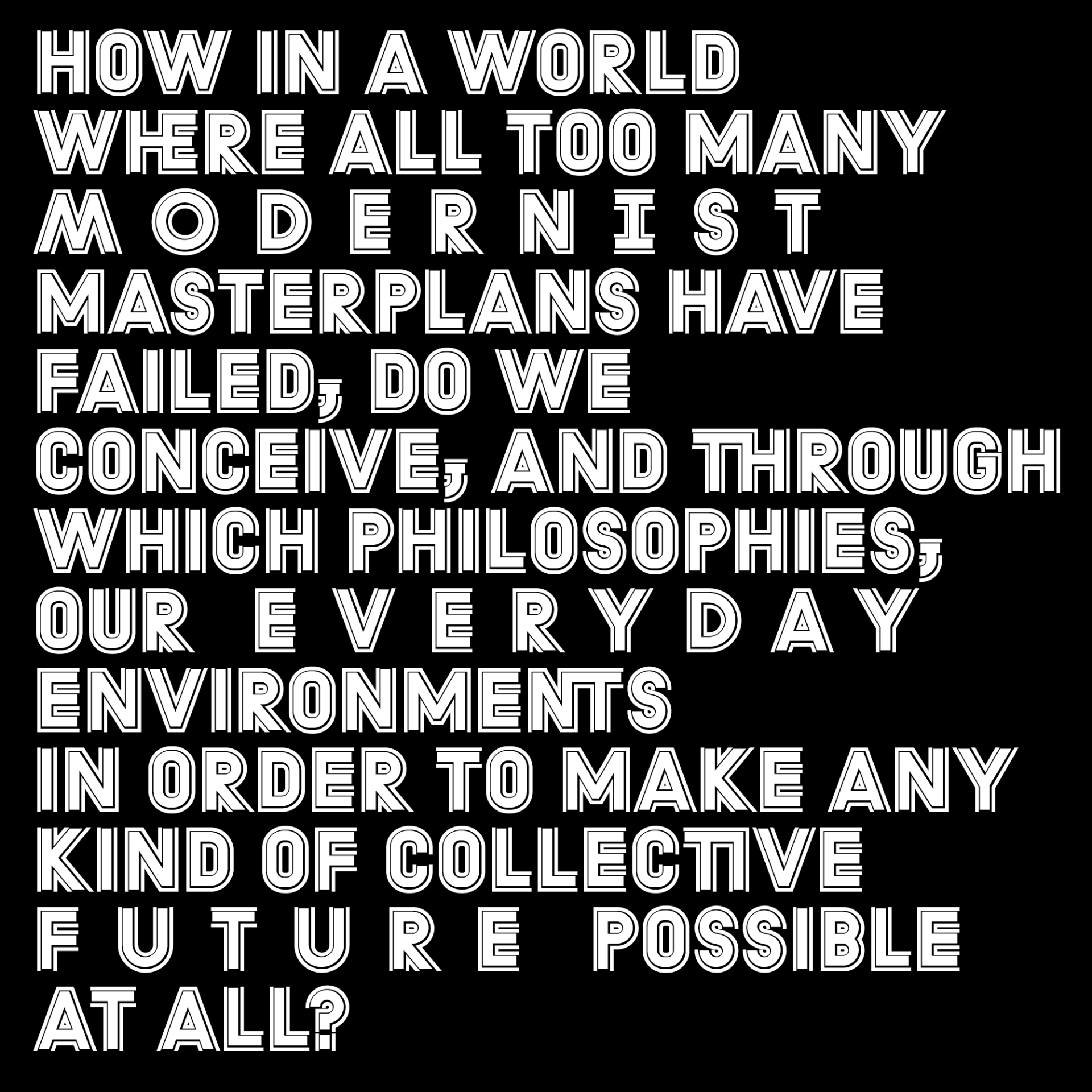Spinning Triangles:
Ignition of a school of design.
Hong Kong
On the occassion of the 100th anniversary of the Bauhaus, SAVVY Contemporary seeks to challenge and act against the inherent, neocolonial power structures in design practices, theory and teaching with its project SPINNING TRIANGLES. It takes up the founding moment of the Bauhaus one hundred years ago and starts from its reality as a school of design to reverse and reshape it.
The programme in Hong Kong is the fourth chapter of Spinning Triangles and presents the last reversing movement within this project. Rather than pretending to reach any conclusions, we recognize that we have barely begun. The collaboration with Para Site is the moment of a further opening, inviting theorists, academics, critics, writers and producers from around the world to reflect and exchange on the multifaceted repercussions of modernity in our everyday lives and its impact on form languages through a symposium and workshops.
Conference 10.10.–12.10.2019
At Miller Theatre and The Hong Kong Jockey Club Hall, Asia Society Hong Kong Center, 9 Justice Drive, Admiralty, Hong Kong
WITH Clara Balaguer, Lawrence Chua, Sebastian Cichocki, Lupe Fiasco, iLiana Fokianaki, Christian Nyampeta, Pan Lu, Sugata Ray, Teren Sevea, Andreas Siagian, Simon Soon, Tan Zi Hao, Ema Tavola, Katerina Teaiwa
Workshops 08.10.–16.10.2019 for registered participants
At Para Site, 22/F, Wing Wah Industrial Building, 677 King’s Road, Quarry Bay, Hong Kong
WITH Sebastian Cichocki, iLiana Fokianaki, Tang Kwok Hin, Inti Guerrero, Lo Lai Lai, Pan Lu, Bonaventure Soh Bejeng Ndikung, Christian Nyampeta, Katerina Teaiwa, Pauline Yao, Yang Yeung
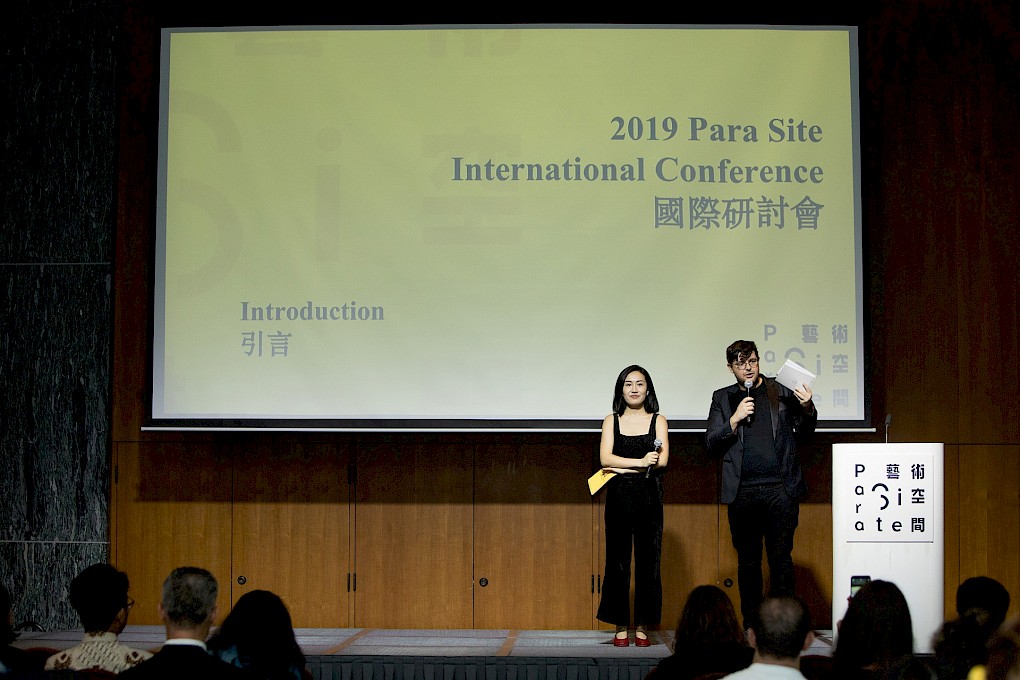
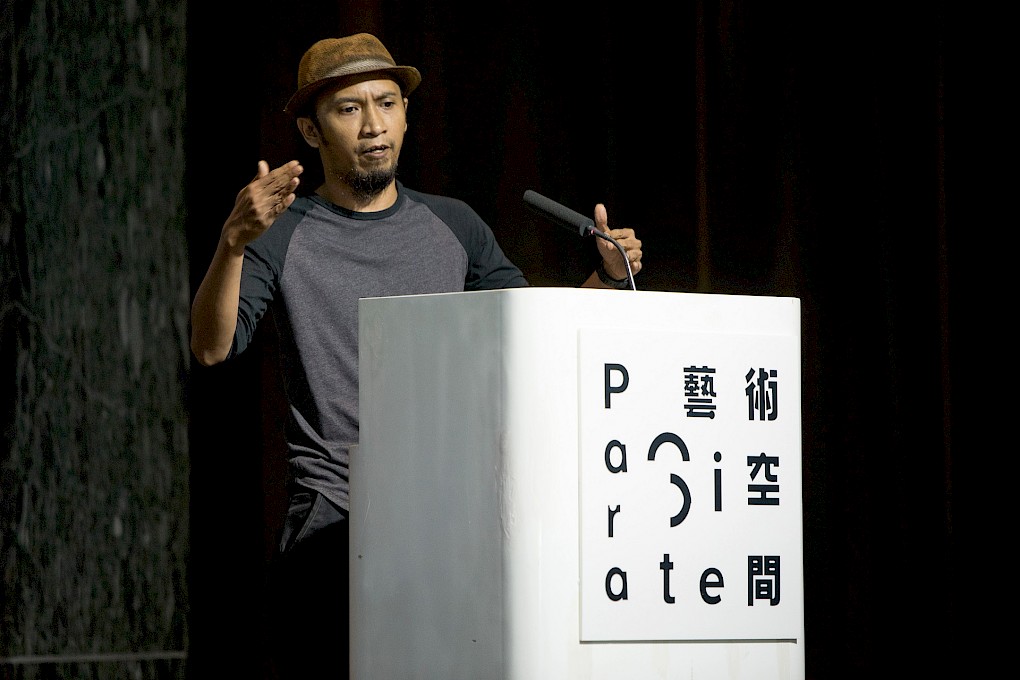
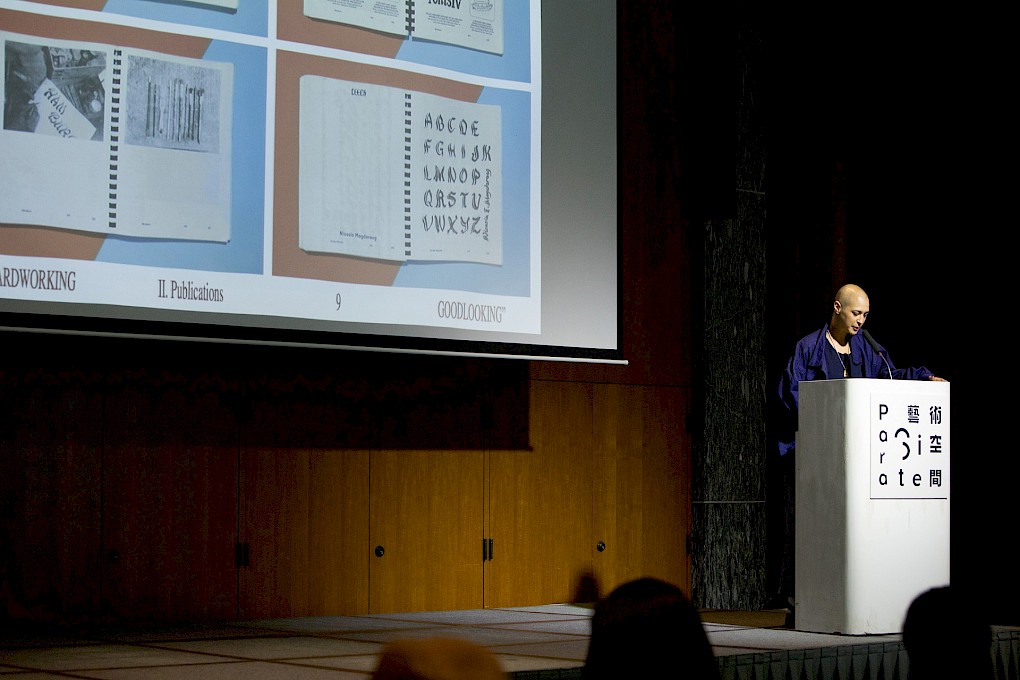
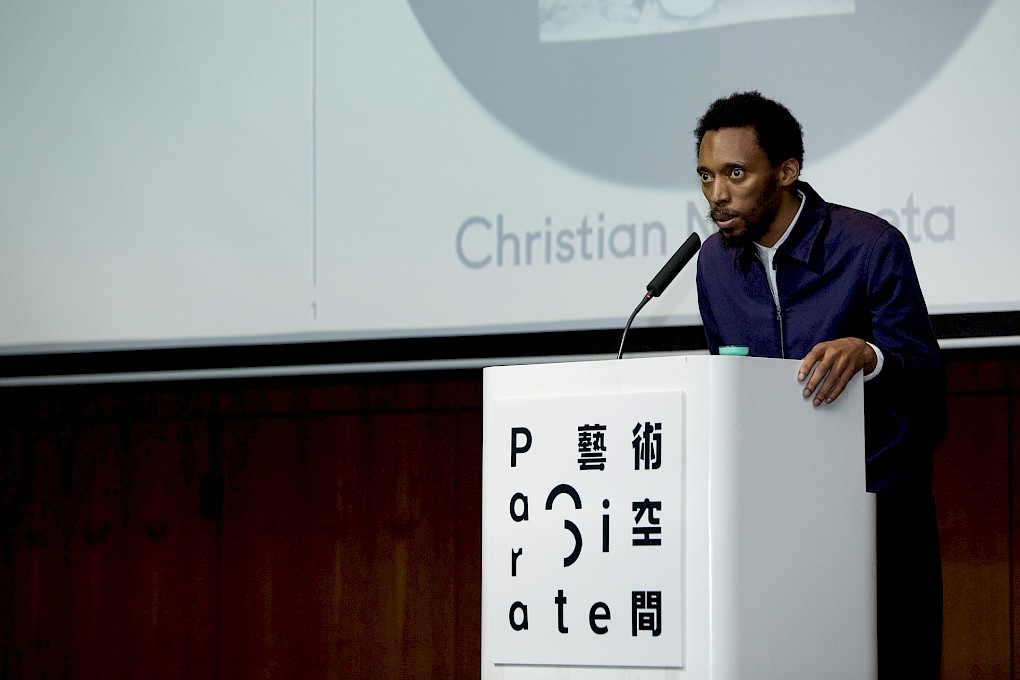
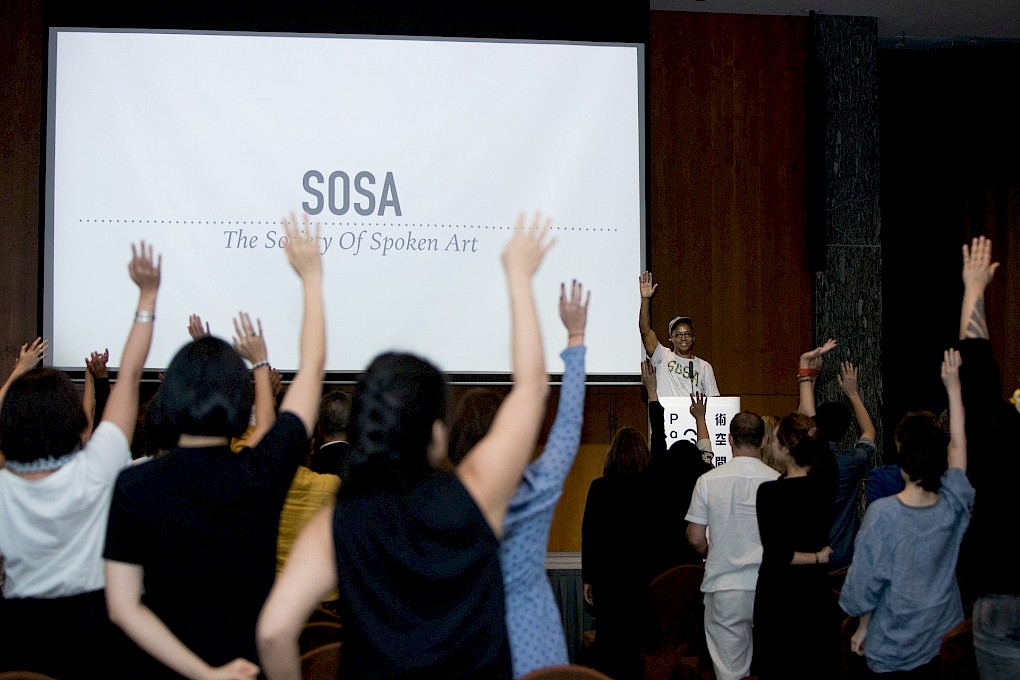
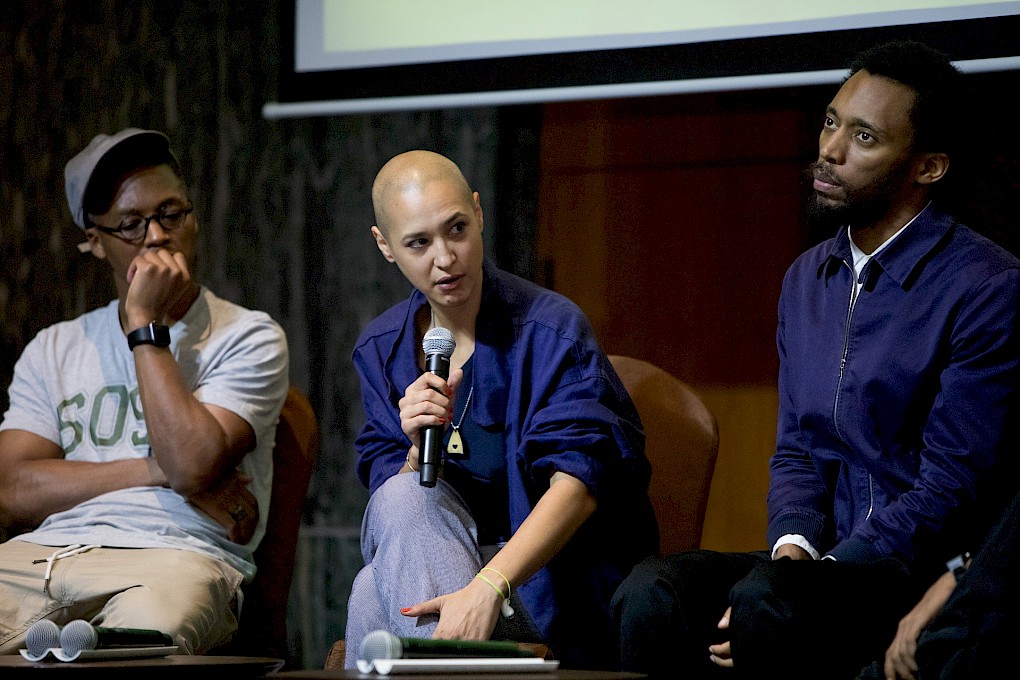
First and foremost, the Bauhaus was a school of design. It aimed to educate a new generation of designers, makers and thinkers that would face the challenges of their “now”. SPINNING TRIANGLES takes up this founding moment of 1919, not in order to repeat it but to twist it: we will create a “school” of design that has what it takes to tackle the challenges of our “now”, and might, precisely by this, turn into an “un-school”. This school will not be developed by the geopolitical West, but through the accelerated movement between three deeply interwoven places – Germany, D.R. Congo, China – and will confuse their prescribed roles as idea provider, raw material supplier and champion of production.
The first spinning of this long-term project has taken place in Germany (Dessau and Berlin), and accelerated into its second spinning in Kinshasa, the capital of a country without which our smartphone-modernity, creative economy and data collecting mania is unthinkable but which also bears the highest costs: the past twenty years alone have amassed six million corpses caused by the ruthless mining of minerals and its associated conflicts – official numbers that can be deemed as cautious estimations.
Here, an exchange platform for knowledge transfer between several actors from the “Global South” was initiated. During a series of workshops and a four day symposium, participants debated status quos, questioned solutions, talked about successes, failures, ideas, possibilities and impossibilities, while moving between presentations, walks, discussions, music and performances. Several workshops initiated further dialogues, where social and political climates, conditions of “now,” the creation for the everyday as well as existing educational formats were not only thought about but also acted upon through practice. In discussion rounds, a viable concept for a school of design was debated and questioned. This speculative frame created a space in which some assumptions were clear: Such a school would not be temporal, but would last and be lived. It would be created for the context in which it emerges (Kinshasa) but would consider its furthering in other geographies, leading to the third spinning.
In this third reversal, the “school” that might as well be called an “un-school,” activated itself in Berlin at SAVVY Contemporary–The Laboratory of Form-Ideas. From 22.07. until 18.08.2019, we made space for a “school” of design, moving along the entanglements between modernity and coloniality, questioning their repercussions for “world-making,” its obvious and less obvious masterplans. By exploring methods and practices alongside these discussions, 40 participants as well as five invited guests from Kinshasa (Lema Diandandila, Grace Mujinga, Orakle Ngoy, Jean Jacques Tankwey and Nada Tshibuabua) progressively gave form to this “school.” Together, forms of co-living and co-creating were negotiated, and thus conceptions of global reality proposed.
In the fourth reversing movement, the art space Para Site will open its yearly International Conference as well as its Emerging Art Professionals workshops to the issues at stake in Spinning Triangles, inviting a wide array of professionals and critical perspectives.
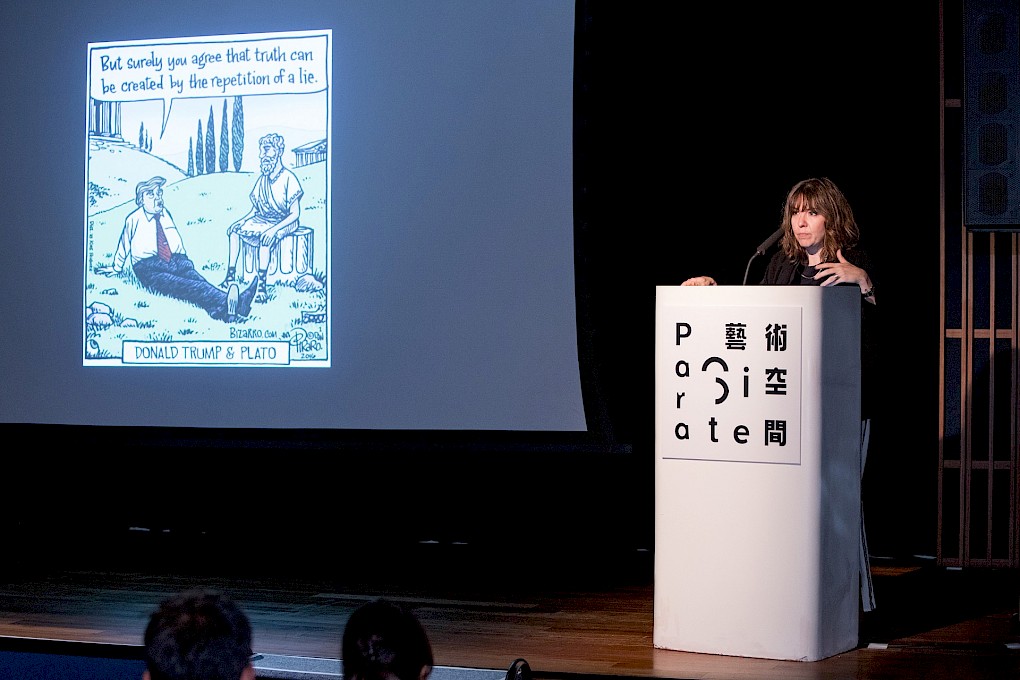
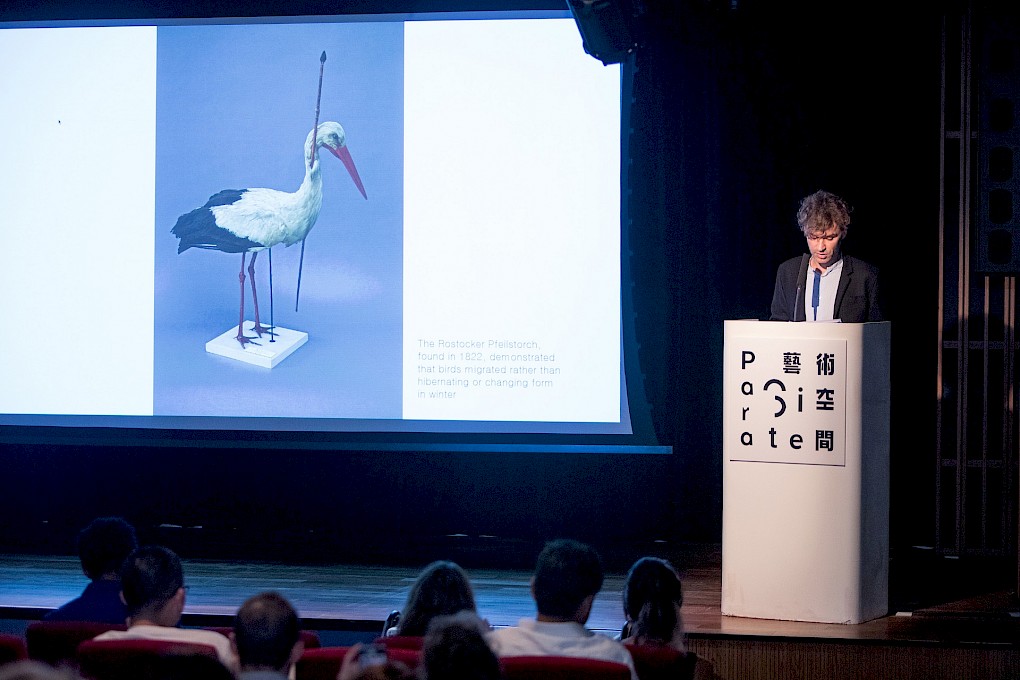
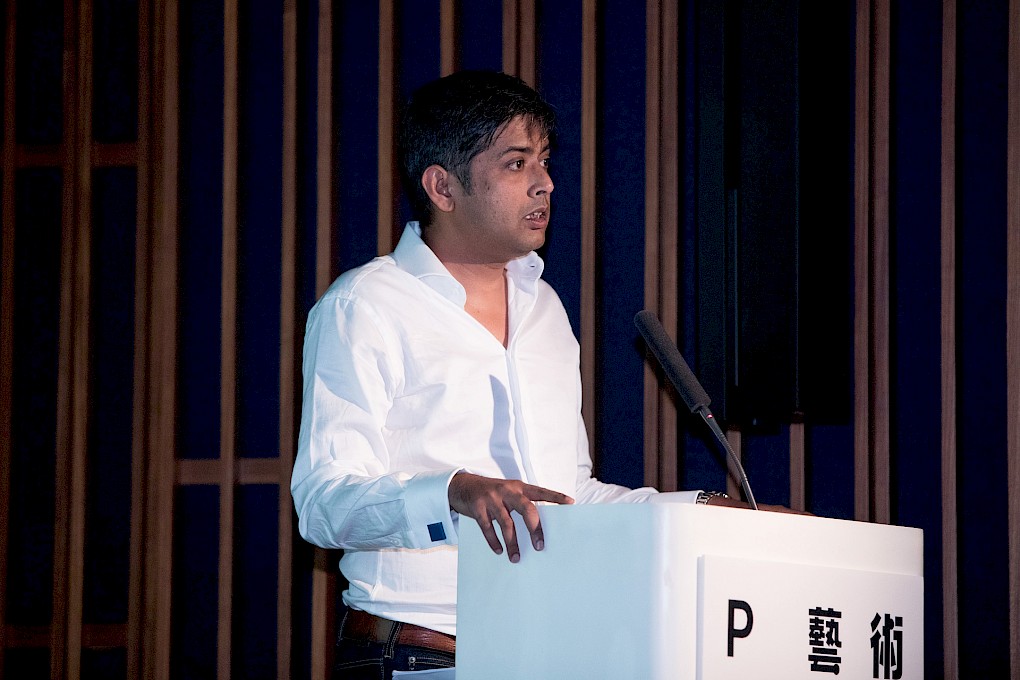
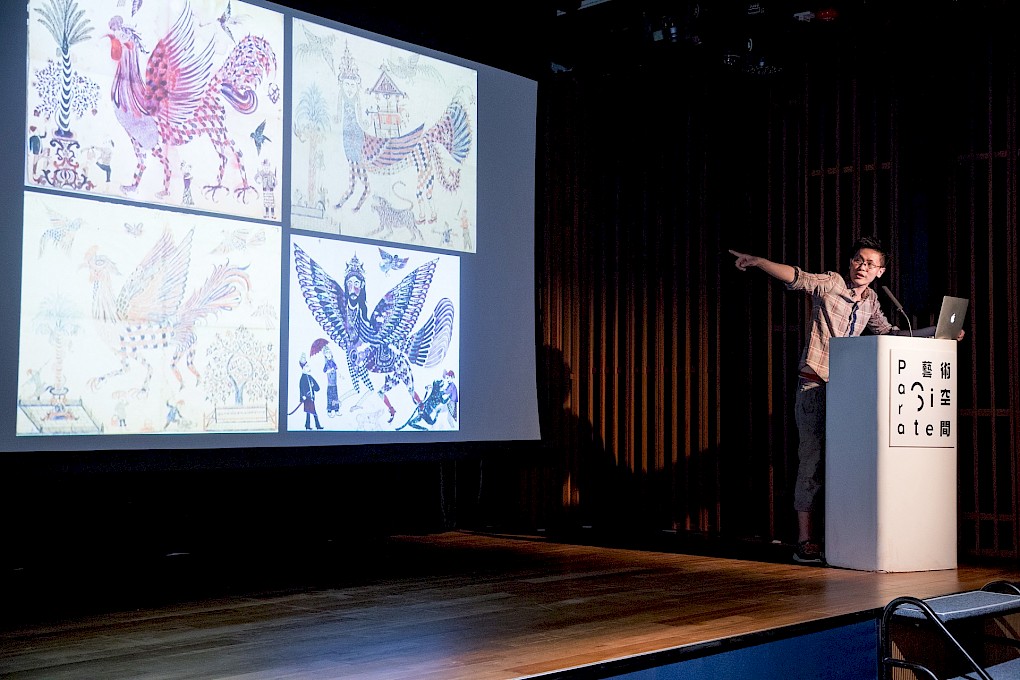
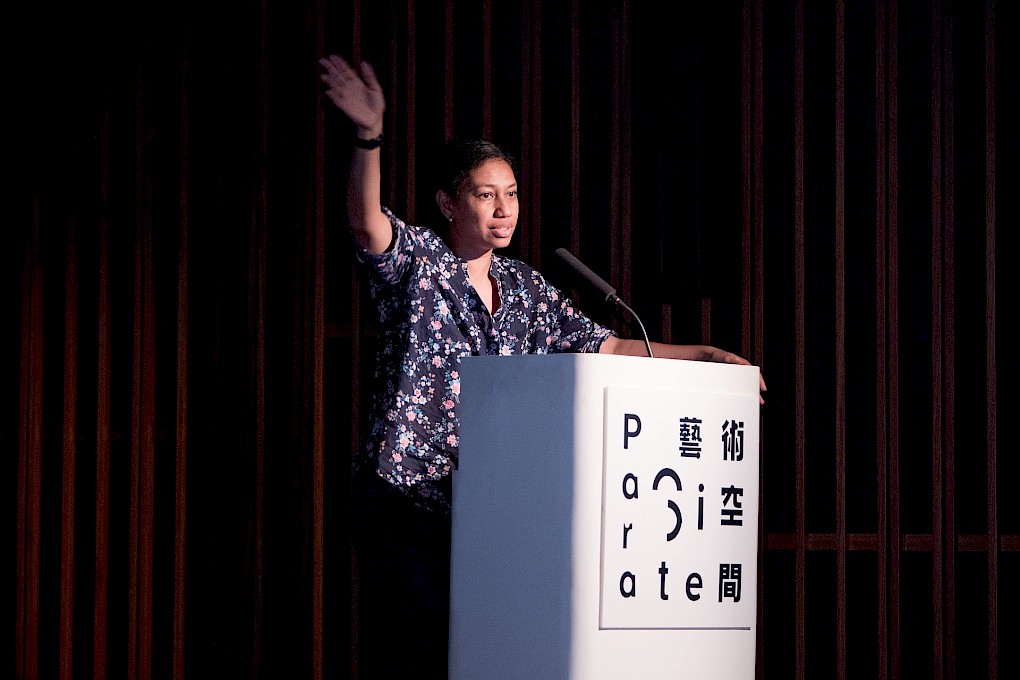
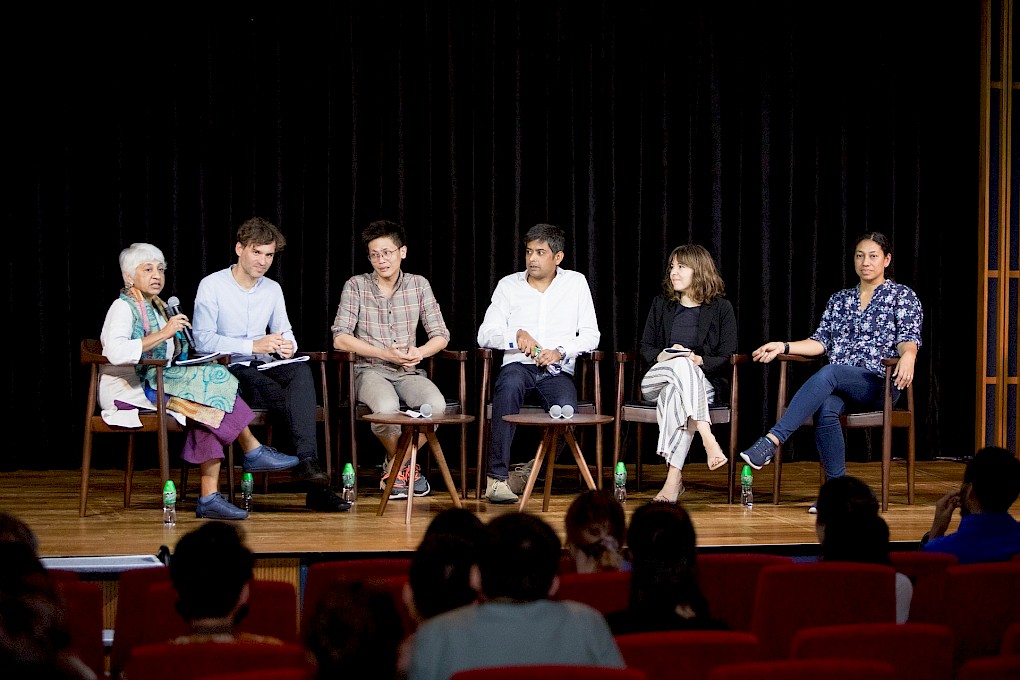
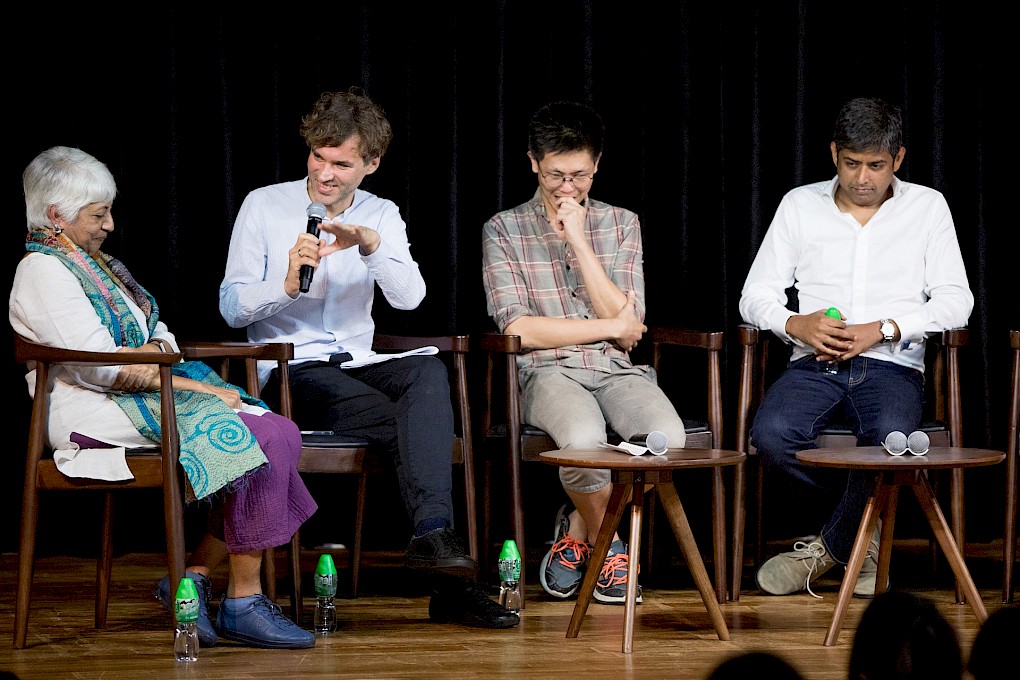
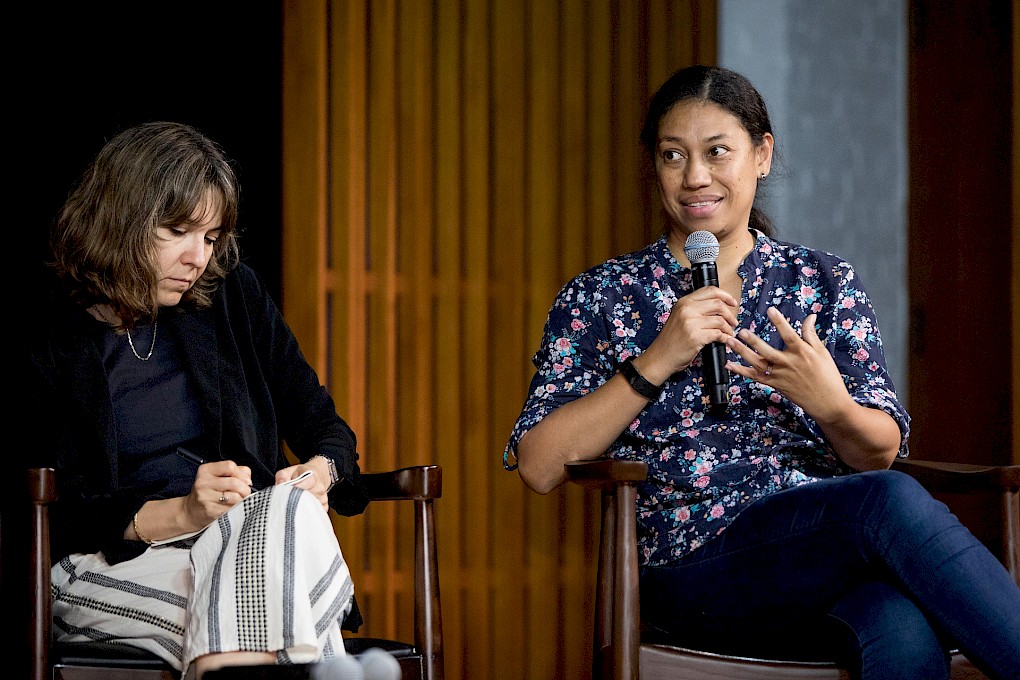
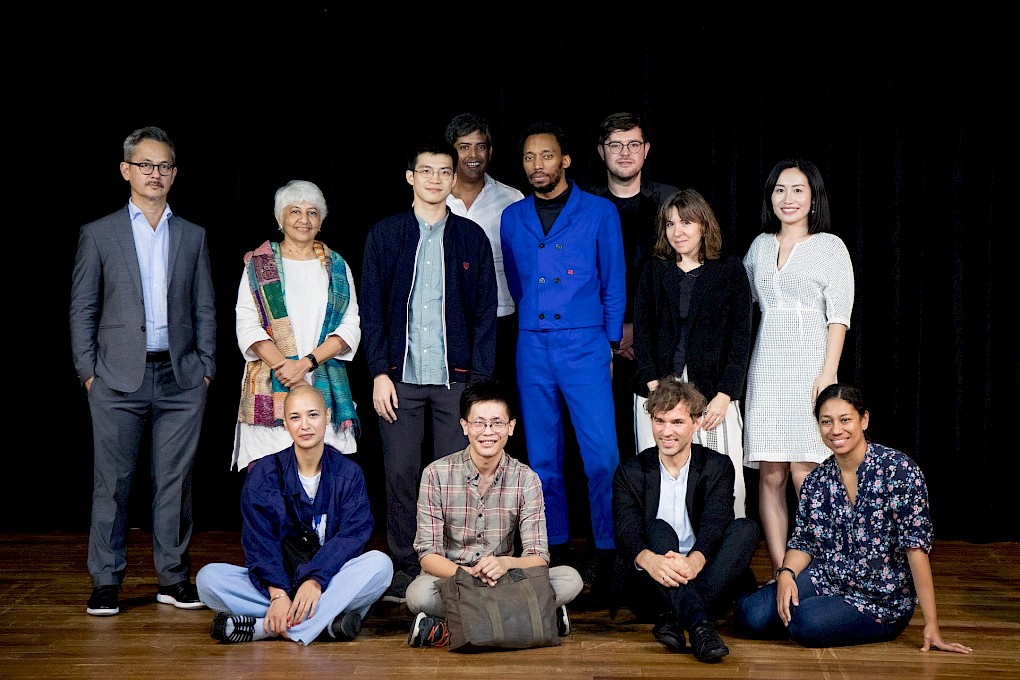
Conference
The conference is convened by Cosmin Costinas and managed by Anqi Li
On October 10, artist-engineer Andreas Siagian will discuss learning and sharing in collectives within an Indonesian context. Cultural worker Clara Balaguer will introduce Hardworking Goodlooking, a collective committed to disseminating vernacular materials of the Philippines’ diaspora. Artist Christian Nyampeta will make Rwandan philosophical texts available in English for the first time, and rapper, record producer and entrepreneur Lupe Fiasco will present the Society of Spoken Art, an institution established by leading rap artists of our generation.
On October 11, curator, writer and educator iLiana Fokianaki will rethink democratically elected right-wing figures in global politics and offer a new reading on power structures. Curator Sebastian Cichocki will delve into a “post-artistic era” that we are possibly in. Professor and author Sugata Ray will draw attention to animal-human relations in the face of a potential Sixth Extinction. Artist and lecturer Simon Soon will shift the setting of modernism’s origin story to the Indian Ocean, and then professor Katerina Teaiwa will shine a spotlight on her ancestral island, Banaba.
On October 12, professor Lawrence Chua will consider the Thai royal court as a sort of “queertopia”. Professor Pan Lu will examine the changing significance of wartime memorials—often set up by colonial authorities. Professor Teren Sevea will lament why a group of Malayan magicians have been ignored by academia. Artist Tan Zi Hao will speculate on the history of composite creatures in Southeast Asia. Finally, independent artist-curator Ema Tavola will wrap up the series by giving the audience an introduction to Melanesian female tattoos.
Workshops
The workshops are convened by Cosmin Costinas and managed by Anqi Li
In its fifth successive edition, Para Site will work with a group of emerging curators, writers, critics, researchers, and other arts professionals from Hong Kong and abroad, through a series of closed-door workshops, lectures, and site-visits. This nine-day intensive programme is designed to provide learning and thinking opportunities, mediated by reputed speakers from Para Site’s International Conference as well as by art practitioners from across Hong Kong’s diverse institutional landscape. The programme provides a laboratory for experimentation, posing fundamental questions and ideas that challenge various models of curatorial practice. It will also offer opportunities for networking and enhance the development of systems intending to nurture the participants’ careers.
The workshops were held by Sebastian Cichocki, iLiana Fokianaki, Tang Kwok Hin, Inti Guerrero, Lo Lai Lai, Pan Lu, Bonaventure Soh Bejeng Ndikung, Christian Nyampeta, Katerina Teaiwa, Pauline Yao, Yang Yeung
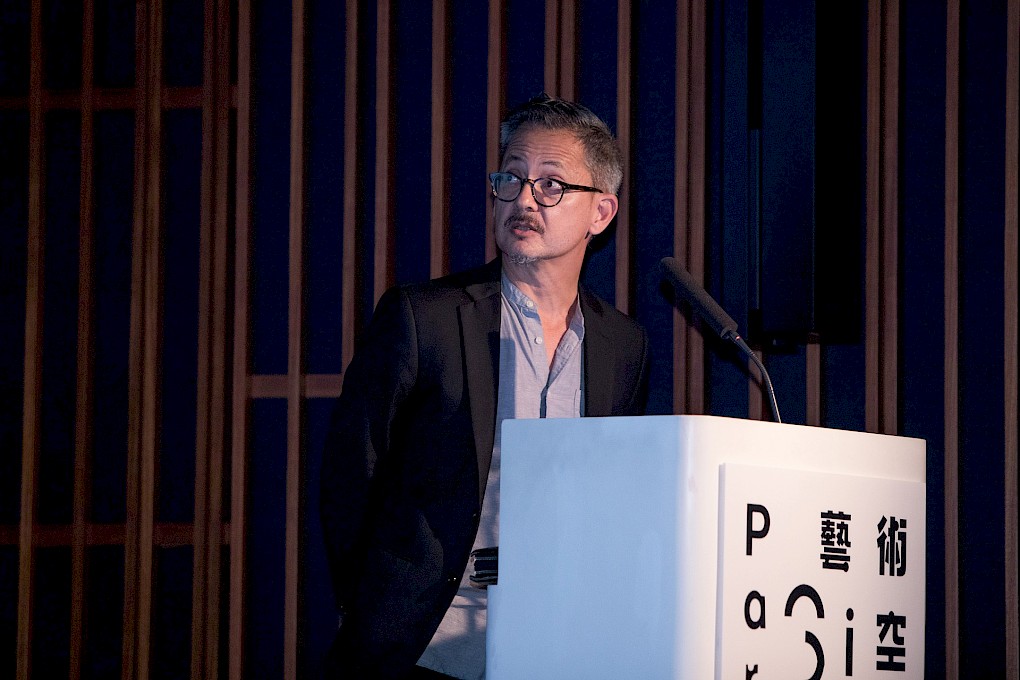
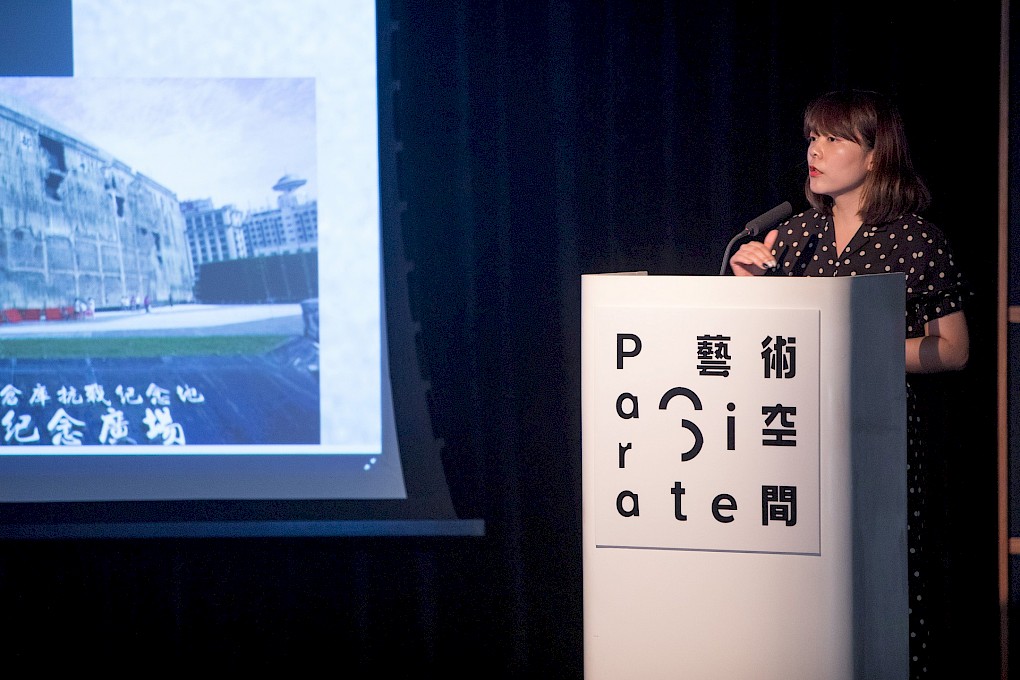
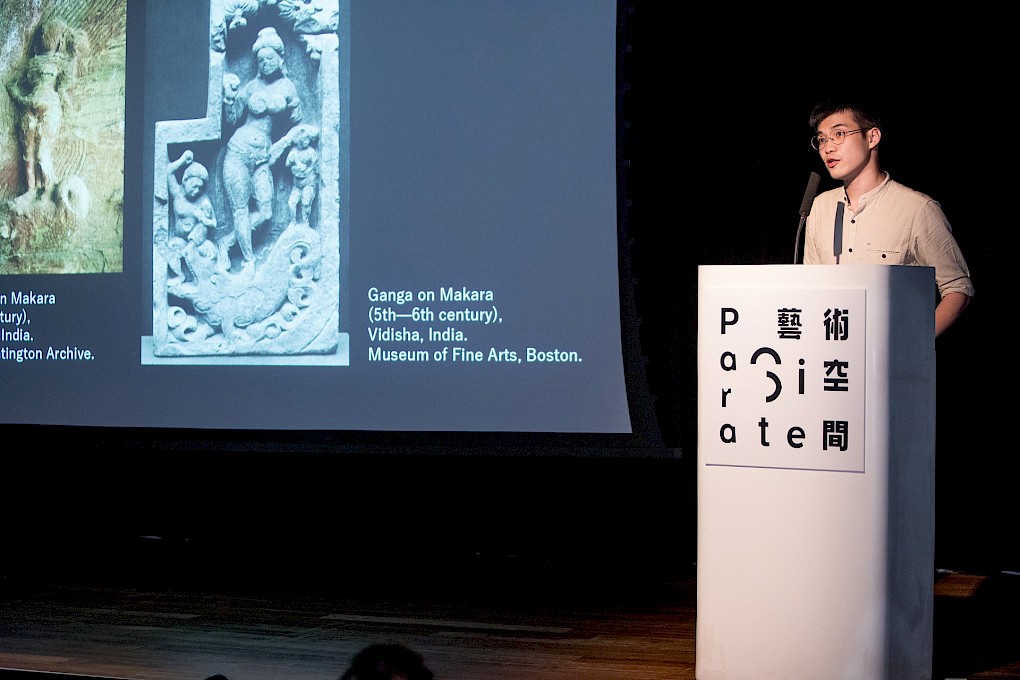
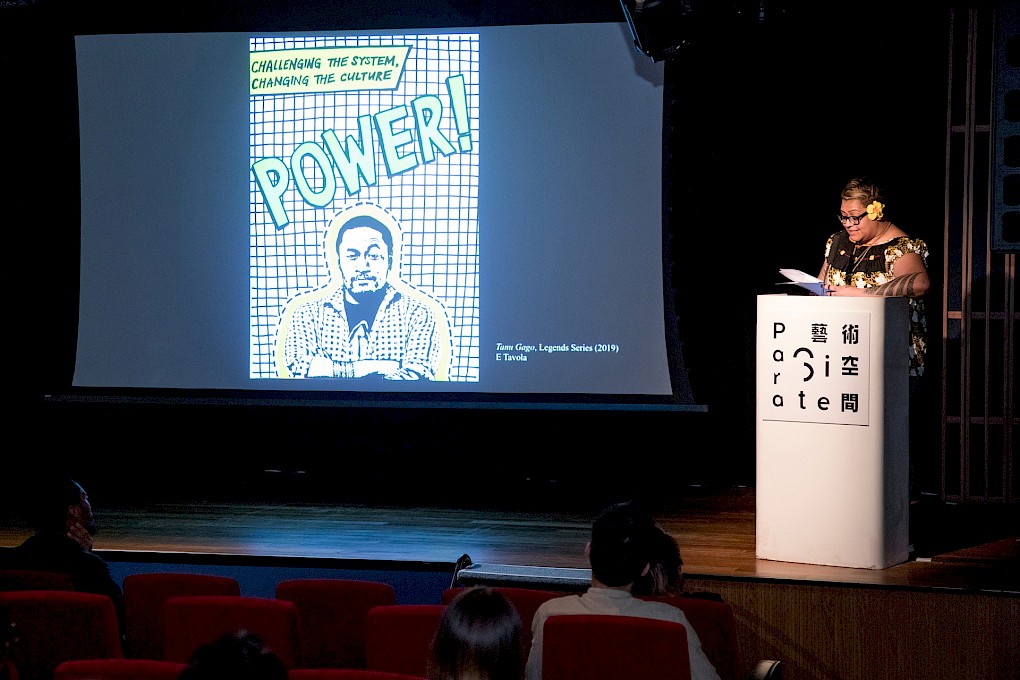
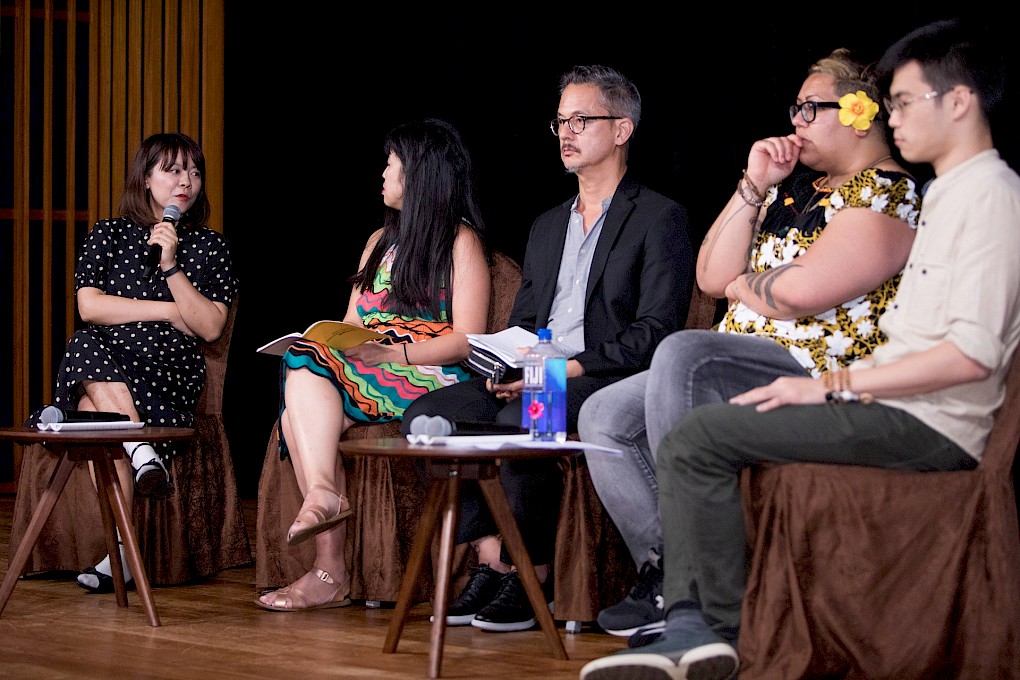
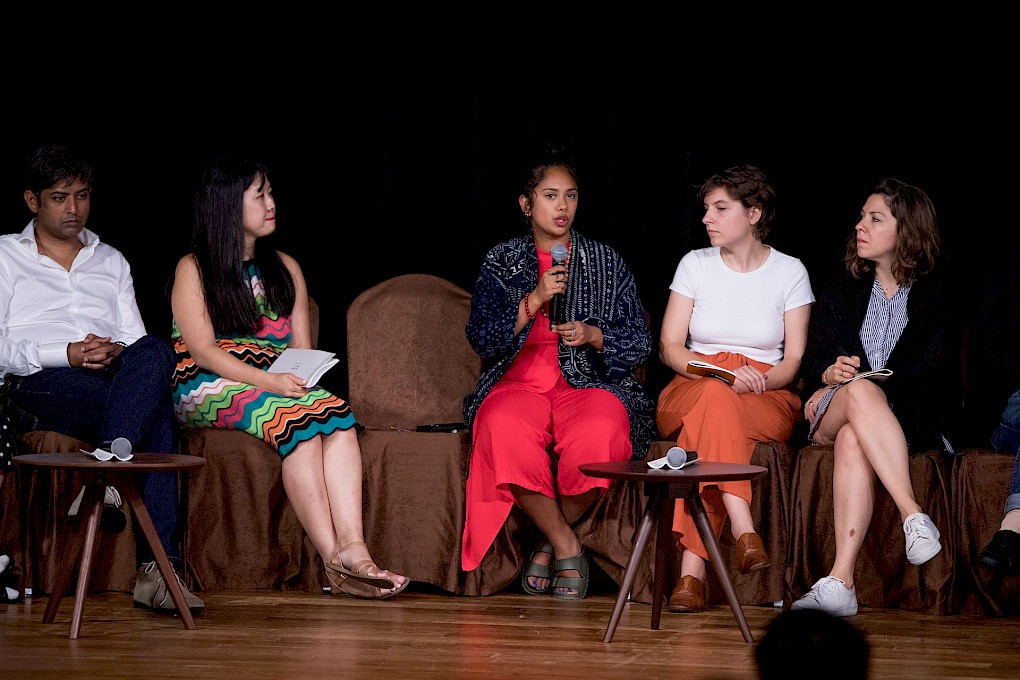
Artistic Direction Bonaventure Soh Bejeng Ndikung
Curator & concept Elsa Westreicher
Curatorial Assistance Jorinde Splettstößer
Curatorial Research Raisa Galofre, Arlette-Louise Ndakoze, Abhishek Nilamber, Lili Somogyi
Management Lynhan Balatbat-Helbock, Lema Sikod
Communications Anna Jäger
Cooperators Tinyhouse University, Goethe-Institut Kinshasa, Para Site Hong Kong, Hochschule Anhalt
Funding “Spinning Triangles” is funded by the Bauhaus heute Fund of the German Federal Cultural Foundation.

Para Site Team
CURATOR and Executive Director Cosmin Costinas
DEPUTY DIRECTOR Claire Shea
CURATOR OF EDUCATION AND PUBLIC PROGRAMMES Anqi Li
COMMUNICATIONS MANAGER Jason Chen
Para Site Funding
Headline Sponsor S.H. Ho Foundation
Support The Workshops are generously supported by Rachel Catanach, Bonnie Chan Woo, Akarin Gaw, Inna Highfield, Claire Hsu, Ingrid Lok, Magnus Renfrew, Joyce Tam, Nydia Zhang, and Laura Zhou.
Additional support Goethe-Institut Hongkong

